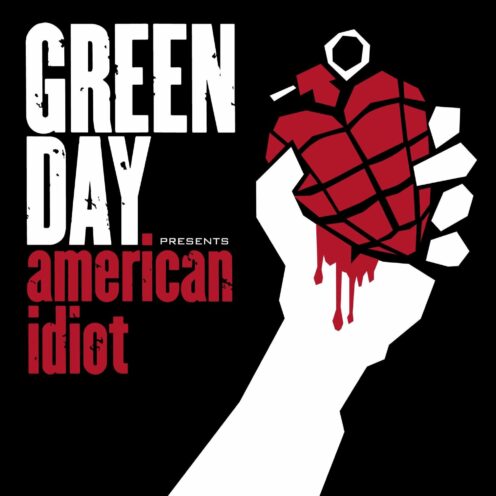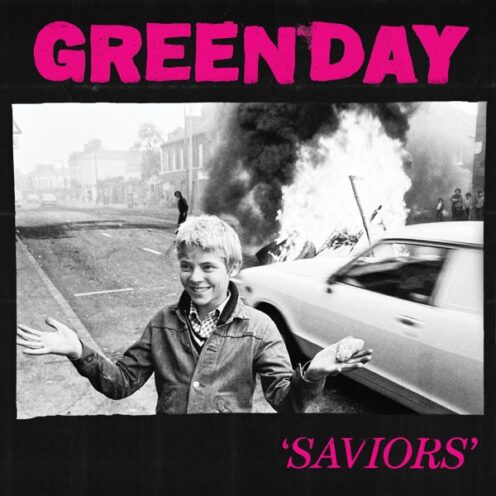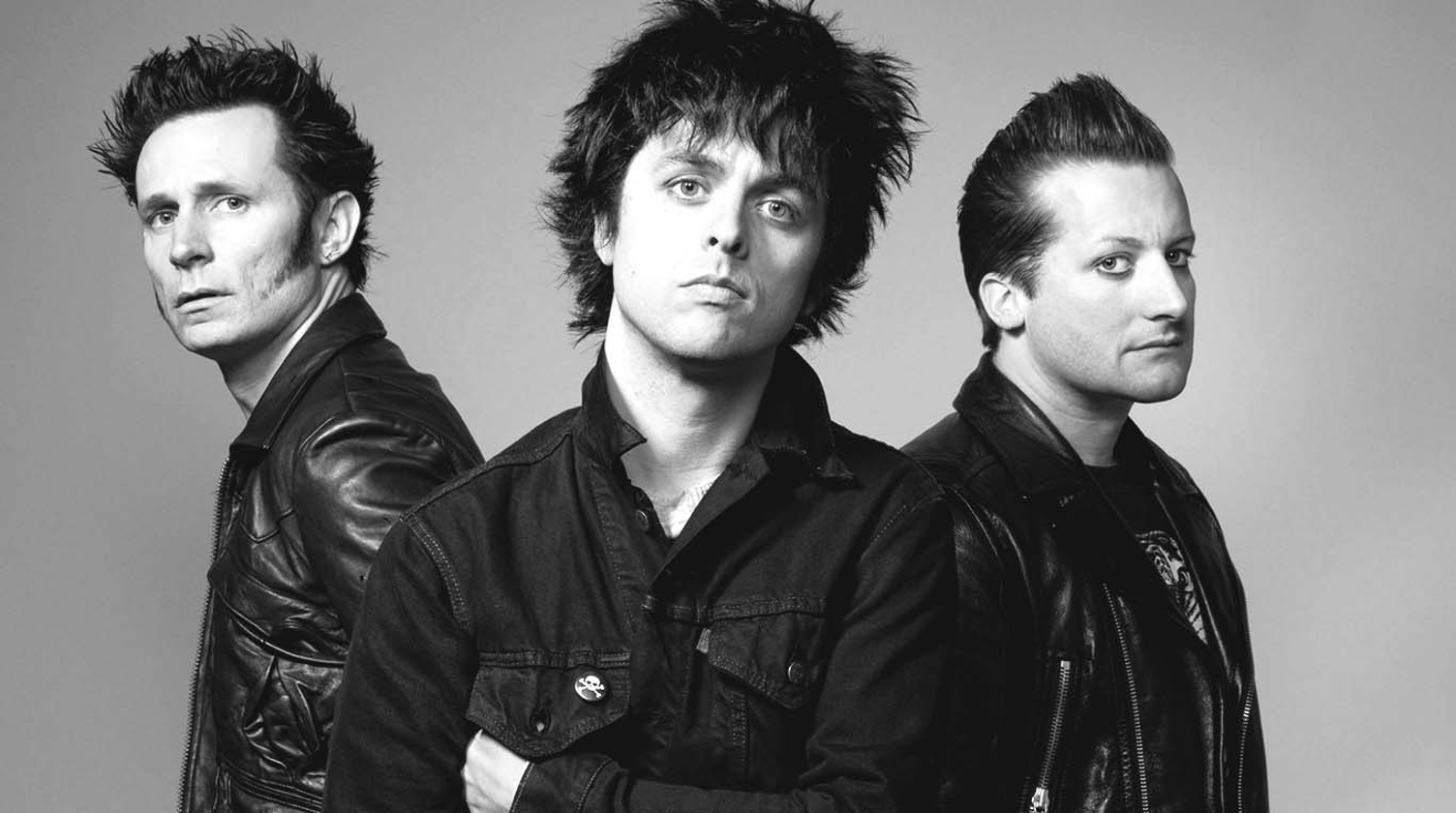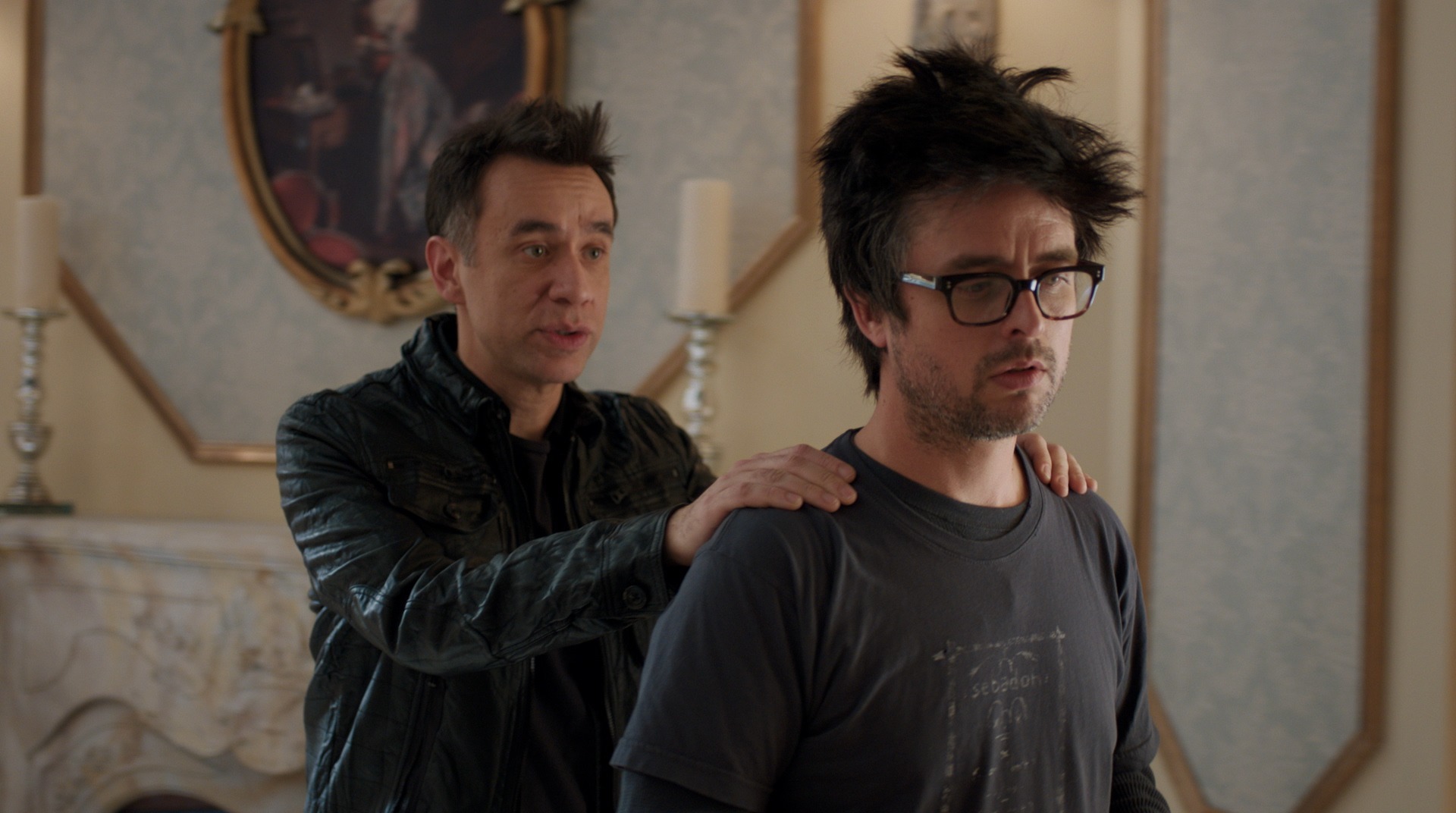Writer-director Lee Kirk discusses his new film Ordinary World, the changes that come with having kids and turning 40, and working with Green Day’s Billie Joe Armstrong in the lead role.
New Clip from ‘Ordinary World’ Has Billie Joe Armstrong Meeting Joan Jett
Rolling Stone has a clip from the upcoming movie Ordinary World, starring Billie Joe Armstrong of Green Day, where the main character meets Joan Jett.
Green Day Announce Tour With Against Me!
Green Day have announced a tour with Against Me! — dates are below.
Green Day Perform “Bang Bang” on Fallon
Green Day Perform on ‘The Howard Stern Show’
Green Day recently performed on The Howard Stern Show. You can stream the five songs below.
Green Day’s ‘American Idiot’ Musical Coming to HBO
Billie Joe Armstrong of Green Day talked with NME about turning their American Idiot musical into an HBO movie:
“That’s the plan right now, yeah,” said Armstrong. “We’ve got a green light from HBO, and the script is currently going through a couple of rewrites here and there, so I’m not sure when exactly we’re going to start shooting, but it’s definitely all systems go at the moment.”
Review: Green Day – Revolution Radio
A lot of people probably thought Green Day were down for the count leading into 2004. They’d had a tumultuous decade of success in the 1990s, capturing the sound of a generation on Dookie and then writing the definitive graduation song with “Good Riddance (Time of Your Life).” Their catalog was stacked with hit singles and earworm hooks, but they’d ushered in the start of the new millennium with little fanfare. 2000’s Warning got decent reviews but changed their sound in ways fans probably weren’t expecting and weren’t terribly psyched about by being more folk-pop than pop-punk. That, combined with the lack of a world-conquering single and the fact that Napster was busy taking a hatchet to the record industry, meant that Warning only ever went gold. Not bad for your average band, but not so great for a group that had gone either multiplatinum or diamond on their three previous albums. Add the 2003 theft of the record that was supposed to the follow-up to Warning, and Green Day seemed washed up and left for dead.
Why Billie Joe Armstrong Hates the Phrase “Pop-Punk”
Billie Joe Armstrong of Green Day talked to Kerrang about why he was on a mission to “destroy the phrase pop-punk” – NME has the quote:
“I come from a scene where every band was different from the others; it was all so diverse,” Armstrong continued. “No two bands sounded the same. No-one was jumping on one particular sound. We were all different. Every good band was into what other good band were doing, and it didn’t matter that these bands were very different from one another. In fact, it was important that we were different from one another.”
“And now we have pop-punk. And I hate that phrase. It lacks diversity.”
But “defend diverse music” doesn’t sell as many TV shirts.
Green Day Call Out Donald Trump During “Holiday”
Green Day performed “Holiday” at the Starland Ballroom on September 28th with a little extra for Donald Trump:
Have you guys been watching the news lately? What do you think of our candidates for the presidency of the United States of America? What do you think of New York’s finest, Mr. Donald Trump? … No racism in this fucking room, I’ll tell you that right now. There is no white supremacy in this fucking room right now! We are coming together tonight, to in New Jersey to call bullshit on all the fucking politicians tonight!
Read More “Green Day Call Out Donald Trump During “Holiday””
Green Day – “Still Breathing”
Green Day’s new song, “Still Breathing,” is streaming on Apple Music.
Green Day Postpone Three Tour Dates
Green Day have postponed the first three dates of their upcoming tour due to an illness affecting several members of the band and crew. The full press release can be found below.
‘Ordinary World’ Trailer
The trailer for the upcoming film, Ordinary World, has been released. The movie stars Billie Joe Armstrong of Green Day.
Green Day – “Bang Bang” Video
Green Day have released their new video for “Bang Bang.” You can find that below. The video was directed by Tim Armstrong.
Green Day – “Revolution Radio”
Green Day Announce New Tour
Green Day have announced some new tour dates. They’re below.









